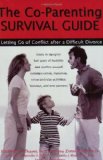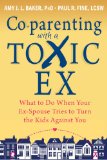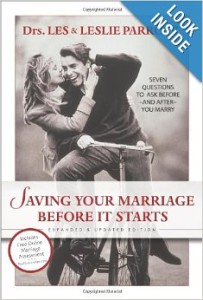The legal divorce process is stressful, even when both parties are logical, but when there’s a personality disorder involved, it can be a nightmare! I lived through it and wouldn’t wish it on anyone! Family Court is geared for “normal” divorces. When a high-conflict divorce comes along, I believe the legal system fails us and sadly, our children suffer the most. When divorcing a psychopath, sociopath, or narcissist, divorce can be disaster. Family lawyers who aren’t educated in high-conflict divorce can make the problem worse by not understanding the situation. I felt like my lawyer didn’t believe me, my stories were so ridiculous. By the end, he finally did. Family law court can favor the more aggressive person at times and the innocent party can often “lose” in the area of child custody, a fair divorce settlement, and other areas of divorce. The more you know, the more you can help your lawyer help you.
Most lawyers (at least from my own experience) are not equipped to deal with high-conflict divorce. Since most divorces are “amicable” in comparison, the high-conflict divorce is something a typical lawyer “gets through” but doesn’t excel in. I had a lawyer with a really good reputation for child custody cases. However, he didn’t seem equipped to deal with this mess.
A high-conflict divorce begins when one party wants to “win” at all costs. In these cases, simple divorce mediation is often not possible. In my case, that high-conflict party was my husband. I was more than willing to be reasonable. I let him live in our marital home while we were separated, even though I could have had him removed. I worked with him on sharing our office space. Before the last straw, he told me that if we get divorced, that he will NOT make it easy. He will fight for and get FULL custody of our daughter (who had always been my responsibility when we were married. He played with her when it suited him). He didn’t CARE what was best for our daughter, only what was best for him. Winning. Hurting me. That was what was best for him. Many of you reading this are likely facing this reality. The narcissist dismisses any of your needs. He/she forgets all the years of devotion and mutual companionship that you had built together. Normal people remember the good times. It creates a sense of balance and fairness during a divorce. You may be getting a divorce, but that doesn’t mean that you don’t have valuable memories and a life story together. For the narcissist, it is all gone; like it never happened. You will have to understand this if you are to deal effectively with him. The narcissist can undermine you with your friends and children. He/she will steal your money and personal possessions, all while looking sincere and generating good will among the community.
Often the party who is willing to negotiate is the party who loses, unfortunately. We settled out of court the DAY OF the trial, minutes before we walked into the courtroom. Actually, our trial was held up as our negotiations were finished up. My family law attorney recommended settling because you never know what the judge will rule. My biggest concern of course, was our daughter’s custody. I finally got my narcissistic ex to agree to him getting 5 days out of 14. In court, we were going to go for 4 days out of 14, but my lawyer didn’t think the judge would go for it. We settled on the property with my ex getting WAY more than he deserved and paying VERY little child support. (He is self-employed and, I believe, may be hiding a lot of cash).
The reasonable spouse often makes excuses for their spouse’s hostile behaviors. We are used to doing this in the marriage to “get along” (translated: get walked all over) and due to this are at a disadvantage when it comes to protecting ourselves legally and emotionally during the divorce. The spouse who is the aggressor will create conflict and the nurturing spouse will respond by attempting to solve problems and get along. The nurturing spouse often fails to realize that the “win at all costs” spouse is not interested in solutions. It is about making you PAY by creating and perpetuating conflict. In the end the nurturing spouse plays a role in the cycle of high conflict by failing to come to this realization. Fortunately for me, I had read enough about this before-hand to know what I was dealing with, and my narcissistic psychopathic ex fit this description to a “t”.
 WARNING: There is little someone like this will not do to “win” this battle. My narcissistic ex secretly took our daughter to the doctor trying to “prove” that she got a stopped-up nose when in my care and he “fixed it” on his days. Seems comical but at the same time, sick. In two-year’s time, he still does stuff like this to try and get more custody. He tried just 2 months ago based on the “fact” that he could “devote more time to her care”. Basically, he doesn’t have to work on the 5 days he has her so he should have her more. Never mind the fact that he can only pay $110/mo. in child support. Where is he getting the money to live off of? That issue, so far, hasn’t reappeared since I refused his request. Of course, I’ve had to pay my lawyer another $150/hr. to speak on the phone with me about this and handle it legally.
WARNING: There is little someone like this will not do to “win” this battle. My narcissistic ex secretly took our daughter to the doctor trying to “prove” that she got a stopped-up nose when in my care and he “fixed it” on his days. Seems comical but at the same time, sick. In two-year’s time, he still does stuff like this to try and get more custody. He tried just 2 months ago based on the “fact” that he could “devote more time to her care”. Basically, he doesn’t have to work on the 5 days he has her so he should have her more. Never mind the fact that he can only pay $110/mo. in child support. Where is he getting the money to live off of? That issue, so far, hasn’t reappeared since I refused his request. Of course, I’ve had to pay my lawyer another $150/hr. to speak on the phone with me about this and handle it legally.
My advice to anyone who finds themselves in a legal divorce process with someone like this is, be prepared, document EVERYTHING he says/does. Your desire to reach a fair divorce settlement could be a detriment when dealing with a high-conflict person. Be sure and get proper legal counsel if you can, get yourself and your children into therapy and if the struggle becomes too much emotionally, be willing to give up the fight and move on with your life. You can start over. I had very little but had a great support team of family that helped me financially after the ordeal. Your high-conflict ex will not settle for less than way more than he/she deserves. The family court system is set up in favor of in a spouse who is out to win. The Family Court System is about defining a winner and a loser. Never make the mistake of believing that the court will hold an emotionally disturbed spouse accountable. Your best bet is to negotiate through your divorce lawyers, if that doesn’t work walk away and start over.
CHILD CUSTODY: It is my belief that the central focus of divorce attorney s and judges in the family court system should be on children’s rights and protecting the children! Not mother’s or father’s rights. Custody determinations should be based solely on the best interest of the child. When there are accusations of abuse and neglect, it is imperative that these items are taken seriously and looked into by highly trained individuals. In high conflict custody cases, with the popular presumption that equal parenting time or 50/50 custody is fair to both parents, the children’s safety, stability and best interest are too often ignored and overlooked while decisions are hastily made due to assumptions about that both parents are angry and therefore accusatory. While an equal parenting time arrangement may work between two healthy parents, it absolutely does not work when one or both parents are determined to lie, manipulate, alienate and abuse the children in the name of winning at all costs. When one parent is out for themselves and not for the best interest of their own child, the children suffer terribly and litigation is exponentially prolonged creating instability for children. In my case, though it is by far not the worst I’ve heard of, my ex refuses to let me know if our daughter has been sick. I find out if my daughter happens to mention it. Then, he is vague with the details, and of course, she only gets sick on days that she comes back from my house, implying (however ignorantly) that she “caught” the sickness from me or while in my care. Only the partners/ex-partners (or close friends) of a narcissist know where I’m coming from here. Others may think I’m making this up, it is so ridiculous. Lawyers see a lot of lies, so they are hesitant to believe anything that is said, especially as unbelievable as some of my stories were, albeit true!
My first go-to webpage source for narcissism was Tina Swithin’s, “One Mom’s Battle”. She has offered some advice to family lawyers on this issue: Family Law Narcissism
- Investigation when words do not match actions – Swithin suggests that this could indicate manipulative tendencies. When uninvestigated, it could begin to affect the case. She suggests that court orders contain as little “wiggle-room” as possible which tends to discourage manipulation. I’ve found a strong parenting plan to be a god-send, as my narcissistic ex doesn’t want to be “discovered”, therefore wants no trouble with the law.
- Harsher penalties for perjury – When individuals are caught lying, the offense should be taken more seriously. Currently, lying is rarely prosecuted, most likely because there is a lot of “he said, she said” in family court and truths are often hard to prove. I’ve learned to keep anything I can use as evidence, such as our work schedules at the time before the divorce (to prove custody issues), receipts from babysitters to prove who paid, and therefore show who took the child to childcare, who arranged for it, etc. I’ve kept all financial records I could get ahold of, even though he was the only one with access to the files I had saved over the years. This may take a little brainstorming on your part. Get some friends in on it. Two heads are better than one. I had past employees that could verify the childcare issues as well. Anyone who would know your past history. Remember, just the facts. That’s all the court cares about.
- Education on Personality Disorders: I believe it would be a disservice to both parties in a couple plagued by NPD, not to educate the child custody evaluators, guardians ad litem, commissioners, judges, social workers, family lawyer s and other legal aid within the family court system. As I’ll say till I’m blue in the face, read, read, read! Educate yourself as much as possible about NPD. Together, we’ll change the system so that other mothers and fathers don’t have to suffer this fear, and children will have a more stable upbringing! Please, please, please help us! Tina Swithin has done much to change the family court system. I believe we need to
follow her lead and help her when we can.
- Focus on the child’s best interests versus parental rights – Swithin believes, and I wholeheartedly agree, that the best interests of the child should be what is focused on. I was “reassured” repeatedly that this was the case, that the family court system is here for the best interest of the child. I find this to be complete BS!!! I do NOT feel that the child’s best interests are the focus of the matter. Not at all. I feel lawyers, judges, etc. are focused on keeping both parties “happy” by giving equal rights, so they won’t have any “Father’s Rights” or “Mother’s Rights” activists on their case. In my opinion, if you’re not “man” (or “woman”) enough to stand behind your decision FOR AN INNOCENTCHILD, you shouldn’t have taken the position as judge! As you can tell, I feel very strongly about this, but you may have other opinions. I am but one opinion and I have been very frustrated with the family court system.
Swithin concludes, “While it takes a village to raise a child, it also takes a village to protect a child. I think the first step is to create a village within the Family Court System that is educated on personality disorders which are becoming increasingly prevalent in today’s society.”
I totally agree. I will do everything I can to help make changes in family law. For legal advice, I would advise anyone involved with a narcissist or other psychopath/sociopath to find a good lawyer. Child custody lawyers are everywhere but I believe it’s hard to find one who knows about narcissism and narcissistic abuse. You may be able to get free legal advice from a lawyer on the internet or, if you live near a law school, you may be able to receive services for reduced prices or for free. Family law has it’s shortcomings, especially when dealing with narcissists. It is my wish and hope that we can change this system soon. Family Law Narcissism Family Law Narcissism Family Law Narcissism
Family Law Narcissism Family Law Narcissism Family Law Narcissism Family Law Narcissism
















